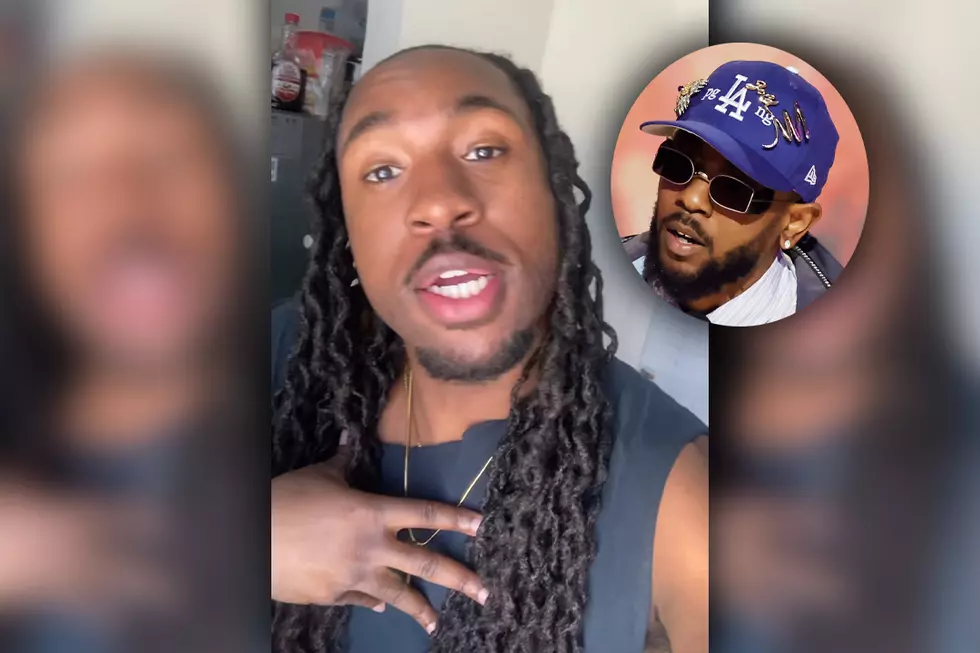
Kendrick Lamar Says He’s a Vessel for God’s Work
Kendrick Lamar's second major label album, To Pimp a Butterfly, is officially out March 23, but has been available intermittently on iTunes for the last day or so. In interviews for a New York Times profile, he recounts being baptized following the release of his 2012 debut, good kid, m.A.A.d. city, and how he first came to religion in the parking lot of Compton grocery store after the death of a friend. Above all else, Lamar told the Times that he's a vessel for the work of a higher power. "I’m the closest thing to a preacher that they have,” said the rapper of his formidable fanbase. “I know that from being on tour—kids are living by my music.” He went on, clarifying the kind of power he has over the youth:" My word will never be as strong as God’s word. All I am is just a vessel, doing his work.”
While good kid interspersed prayers and religious chants throughout its comparatively slighter running time, To Pimp a Butterfly focuses more heavily--and more headily--on race. Songs like "Hood Politics" and "Complexion (A Zulu Love)" draw from the well of race politics that Lamar has touched on time and again throughout his brief career. The rest of the Times profile focuses on the mechanics of his music's widespread popularity despite its limited commercial concessions.
Related: 11 Songs Sampled on Kendrick Lamar’s ‘To Pimp a Butterfly’
Listen to the Full 2Pac Interview Kendrick Lamar Samples on ‘Mortal Man’
Killer Mike and Rapsody Thank Kendrick Lamar on Social Media
Listen to Kendrick Lamar Freestyle Over Classic Notorious B.I.G. Songs
More From XXL









